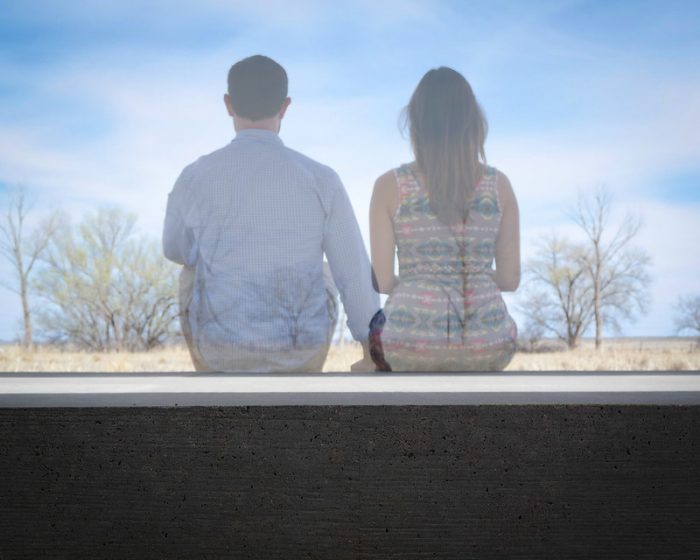“Relax. Nothing is under control.” ~ Adi Da Samraj
I read somewhere that the craving for certainty is the very definition of anxiety itself.
It made me think of anxiety like a growth on your body—one that if you followed it down to its very root, you’d find this little person with a big voice screaming out a series of terrifying what ifs.
This little person craves pinning things down and hates the great unknowns. It tries to imagine every single possible scenario, preparing for every conceivable outcome, disguising overthought and overanalysis as preparation.
As much as I love to have plans, goals, structure, and routine, it doesn’t change the fact that most of what happens in life is out of my control. And yours too. I mean, think about it: we are literally held down by a gravitational force on a rock that is spinning through an infinite amount of space. Having control is an illusion. The only obvious thing we can control is ourselves, and even that feels often feels difficult.
I recently discovered a podcast called Secular Buddhism. It’s as if the universe conspired for me to hear it, because I’ve been struggling a lot with a specific soon-to-be change in my life. So, I scrolled through and discovered the episode titled “Groundlessness.” I laughed when I read the title. Isn’t it all the rage nowadays to feel grounded? I clicked on it and allowed my ears to sponge up a soothing modern-day Buddhist’s reminder that, essentially, life is not in my control, and never actually was—and as scary as that sounds it’s actually okay.
So, what is groundlessness?
It is what Buddhists call impermanence, and it’s a difficult reality to accept. Human beings crave solid ground, a concreteness, a knowingness that everything will work out. It’s in our human nature.
But no matter how much we try to make things secure and permanent, each one of us will experience a complete and utter loss of control. These situations will vary in magnitude, but if we live long enough, something unexpected—often painful and entirely uncontrollable—will happen. Maybe we discover our beloved dog has terminal cancer, that our partner is leaving us, that we are being fired from our job, or that we have some incurable illness. Whatever it is, we are thrown out of our secure little routine-based lives and plunged into a whole new world of uncertainty, anguish, confusion, and suffering.
Accepting the loss of control
According to Buddhists, we suffer most when we resist what is. Instead of accepting the fact that our entire sense of the world is out of control, we might try to deny it or escape through drugs, alcohol, food, shopping, or another vice. But all we need to do is feel the fall and embrace it.
That’s right. Embrace that terrifying, horrible, gut-wrenching sensation of falling. You might then ask, how exactly, Mr. Buddha, could I ever possibly get to the point where I would embrace the feeling of having the rug pulled out from under me, throwing me deep into uncertainty and insecurity?
Apparently, this happens by allowing ourselves to feel these experiences with of uncertainty as physical sensations in our bodies. We allow our bodies to surge with fear, anxiety, frustration, and to then become present to it circulating in our bodies.
That’s it, just letting it be.
Most of the time, we cause more suffering by telling ourselves to not feel what we currently feel, which is futile because we are already feeling it.
Whether we like it or not, the very essence of life is change and impermanence. In order to find peace, we need to make friends with uncertainty.
“If you’re invested in security and certainty you are on the wrong planet.” ~ Pema Chödrön
Difficult moments push us to grow
Difficult moments offer us an opportunity to discover something about ourselves. Suffering and pain allow us the opportunity to transmute those experiences for something bigger than ourselves.
Instead of reaching out for an escape, turning bitter, or shutting down, we are encouraged to face our suffering and use it as fuel for transformation.
Becoming present
When life is spiraling out of control, the last thing anyone wants to hear is “stay present.” Um, no thanks. I’d rather dissociate and take my mind anywhere but where it is. But staying present comes hand in hand with acceptance. The good news is that we are always far stronger than we give ourselves credit for.
Once we learn to accept all of the darkest moments of life, we learn that nothing lasts forever. Everything is changing and fleeting. As much as it may feel like we need it, we can experience love, abundance, and joy without having the solid ground to stand on.












Read 2 comments and reply